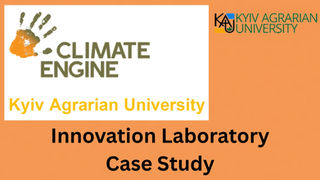
CLIMATE-ENGINE
Empowering HEIs as engines of climate innovation through Climate Innovation Labs, entrepreneurship training, and cross-sector collaboration

ABOUT
Building on the success of the ILCA (Innovation Laboratories of Climate Actions) project, Climate Engine is a collaborative project funded by the EIT Higher Education Initiative, uniting 13 partners across nine higher education institutions (HEIs), one research institute, and two business leaders — alongside associated private and public organizations.
Our mission is to transform HEIs into engines of place-based climate innovation by launching five new Climate Innovation Laboratories, strengthening entrepreneurship, accelerating innovation-to-market pathways, and embedding long-term institutional change.
Climate Engine supports capacity-building, fosters cross-sectoral partnerships, and drives regional impact aligned with smart specialization strategies.
By 2030, we envision HEIs as hubs of climate-focused innovation, delivering solutions with an active handprint through education, collaboration, and actionable outcomes.
Climate Engine is driven by four core objectives:
-
Empower HEI Ecosystems: Train 1,680 students and staff through innovative programs and workshops on climate action and sustainability, while mentoring 232 individuals in entrepreneurial skills. Five HEIs will adopt the "Innovation Week" program to foster climate-focused innovation.
-
Foster Innovation-to-Market Pathways: Establish and enhance five Climate Innovation Laboratories, engage over 100 stakeholders (industry, academia, policymakers) in co-creating 10 Climate Innovation Projects, and support 60 start-ups and scale-ups in adopting digital climate solutions, such as drones for agriculture and forestry.
-
Strengthen Climate Transition Capacity: Build 12 new partnerships with EIT Climate-KIC, EIT Digital, EIT Food, and regional ecosystems, while developing place-based climate roadmaps tailored to regional challenges. SMEs will be integrated into training programs to enhance their climate transition and digital transformation capabilities.
-
Drive Long-Term Institutional Change: Embed climate innovation strategies into five HEI frameworks, implement multidisciplinary organizational mechanisms and incentives, and align regional policies with climate-smart specialization strategies.










